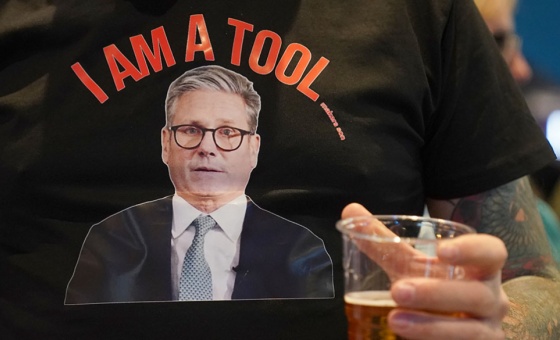This is the last article you can read this month
You can read more article this month
You can read more articles this month
Sorry your limit is up for this month
Reset on:
Please help support the Morning Star by subscribing here
CREATING universal and comprehensive public transport is the only way to effectively cut carbon emissions from travel at home and abroad, unions and campaigners have said during Cop26.
Campaigners and politicians condemned the lack of consideration of rail, bus, ferry and cycle transport during proceedings at the summit today, where the focus was put on cars and planes instead.
Officials and delegates at the gathering in Glasgow made a number of announcements on transport, including on zero-emissions vehicles, so-called green shipping corridors, and on decarbonising air travel.
Tory Transport Secretary Grant Shapps said that travel, including aviation, should be “guilt-free.” He also said that the government did not see flying as “the ultimate evil,” after officials, including Prime Minister Boris Johnson, were condemned for using planes for short journeys during Cop26.
But unions and campaign groups highlighted the need for stronger rail and bus services throughout Britain, and backed public ownership to ensure that services work for all.
Before talks began at the conference hall on the River Clyde, a large demonstration took place in George Square with demands for equal access to transport systems in the summit’s host city.
Delegates at the summit have been given a travel pass which grants free travel on buses, trains and the subway system.
But no integrated travel system exists in Scotland, and the cost of the largely privatised sector has been on the rise in recent years.
Friends of the Earth Scotland transport campaigner Gavin Thomson told the Morning Star that only a radical overhaul of the transport system can deliver a just transition to a greener planet.
“We need to start thinking about transport like we do about health and education: as so important to public life that it’s paid for out of general taxation and free at the point of use,” he said.
“Not just because we drastically need to reduce emissions from transport, but because it is so important to things like education, employment and reducing social isolation.”
Trade union leaders joined the call for focus on public transport, with STUC deputy general secretary Dave Moxham asserting that the free market has no place in the sector.
The alternative is to run our own bus and rail networks, he said, adding that now is the time to act.
A Transport Scotland spokesman said the government “is taking forward a comprehensive suite of measures to promote more sustainable, affordable public transport journeys and deprioritise car use.”
At an event organised by the Peace and Justice Project, rail unions set out their vision for the railways.
Kevin Lindsay, Aslef’s organiser in Scotland, said that rail in Scotland will largely remain privatised even after Scotrail returns to public hands next year.
In a move towards providing a railway for all, he said that everybody under the age of 24 should be given free transport on rail services.
RMT organiser Mick Hogg said he was increasingly concerned about suggested cuts to services, and called for passengers, vulnerable communities and railway infrastructure to be put first.
We Own It director Cat Hobbs said that Britain must bring buses and trains back into public ownership and control.
“We can’t tackle the climate crisis unless we give people a real alternative to cars and planes, instead of just trying to make them greener,” she said.
“We need a decent, affordable, high-quality public transport network that we can all rely on, to make the best use of shared resources.
“The privatisation money-grab of the last 30 years hasn’t served passengers or the planet.”
Former Labour leader Jeremy Corbyn said there must be an increase in rail capacity from north to south, and called for urgent action to protect the future of the railways in Scotland and beyond.
The transfer of Scotrail to public hands must be the beginning of full public ownership of public transport in Britain, he said, adding: “Get the leeches off the railway, get the staff into the trains, and get the public back onto the railway.”











